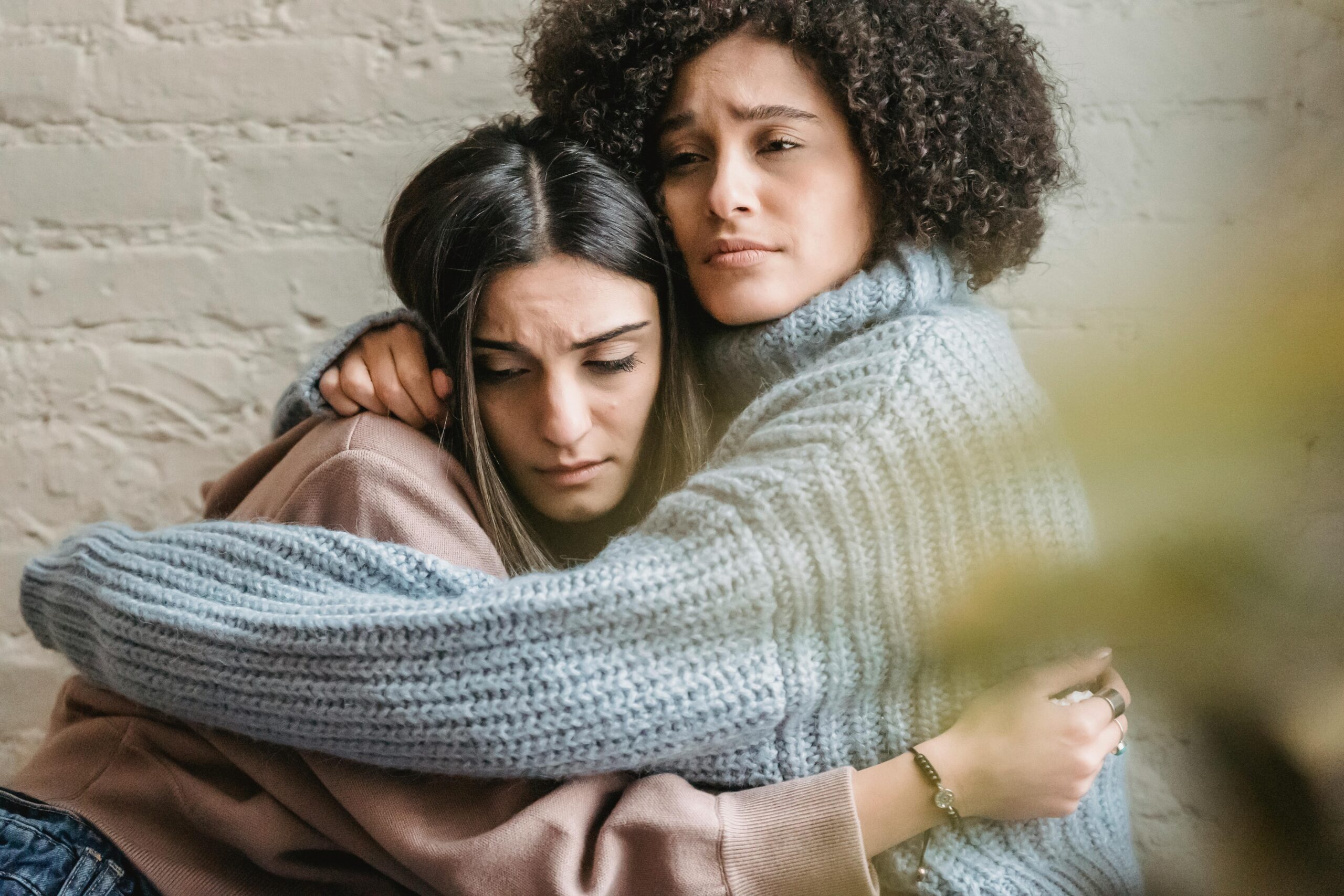our blogs
Current Post

The Grief Following Suicide
Casie Johnston, LPC
Insight Clinical Counseling and Wellness
“Those who expect you to get over grief have never suffered life-altering loss.” – Lisa Appelo
This blog is difficult for me, as I am trying to navigate writing this in my professional self and my personal self, so here’s a little bit of both.
This November 29 will mark 6 years since I lost my brother, Kyle, to suicide. The year 2018 was supposed to be the happiest year of my life. In May, I graduated from Youngstown State University with my master’s in Clinical Mental Health Counseling. I was working as a Licensed Professional Counselor, working with children and their families. I got married on August 4th of that year. Then my world shattered on November 29th. The happiest year of my life suddenly became the saddest year of my life. I’ll never forget receiving that phone call. My thoughts immediately went to, “this can’t be real,” and “how is this even possible?” This feeling is truly indescribable, basically like your world just came crashing down in a split second.
As a counselor, you are trained to see signs of suicidality. Some common ones; vocalizing suicidal thoughts, giving away their prized possessions, being depressed and withdrawing, or being reckless… just to name a few. But what about when there weren’t any signs leading up to this tragic event? You think back and wonder what you missed. Not only was this your brother, someone very close to you, but you just became a professional counselor… bring on the guilt. He had gone through some hardships in his short 32 years, but we are such a close family, coming from loving parents and being one of five kids, and we never saw this tragedy coming. We spent Thanksgiving together with our entire extended family just one week before.
I’m sure you’ve heard about the five stages of grief: denial, anger, bargaining, depression and acceptance; however, I think it’s important to know how nonlinear this is. In my grief, I went from depression, to denial, to anger, to depression, and more depression, and I don’t think I ever hit the bargaining stage, (or maybe I did and didn’t realize it). The acceptance stage has always been tricky as well, because what does that really look like? What am I accepting? Do I accept the fact that I will never have another memory with my brother? No, but do I have any other choice but to accept the fact that he’s not coming back? Unfortunately, yes, because I don’t have any other option.
I also believe the nature of the passing of someone you love makes grief a little different, too. With suicide, it’s sudden and usually unexpected, so it can be very hard to accept. The age of the person can make a difference as well. When my grandmothers passed, they both were older, lived a long life, and slowly started aging. This is still hard on loved ones but isn’t usually as intense of a grieving process compared to someone as young as 32.
One thing I do know is that grief changes you as a person. It’s so hard to say exactly how or in what way, but I know for certain that I am not the same person I was before November 29, 2018. A piece of me died when Kyle died, and I will never get that piece of me back. It was truly a life-altering loss. However, to see things in a more positive light, I now try to be more aware of how I express myself and leave conversations with people I love. I also try to be more aware of others. If someone in public seems to be having a bad day, smile at them instead of getting angry with them. You truly do not know what they are going through.
I initially went to see a counselor after, and I will say, EMDR as a treatment option was beneficial. One thing I realized is there is no timeline to grief. I am still grieving even six years later, especially with the two dates out of the year that still affect me without me even realizing it; Kyle’s birthday (May 9) and his death date. Leading up to both of these dates, I automatically and subconsciously am more irritable and can feel myself feeling more down. I look at the calendar and realize why. Then I look back on all the pictures we have together, and think about the last time we saw each other. Luckily, we hugged and said “I love you!” and “I love you too!”, and our last texts read “Miss you” and I replied back, “I miss you more..” These last memories make a difference in the grieving process! However, the main thing that helps is the support from my family and us being able to stick together. We are all grieving, even though that looks different to each of us because grief doesn’t have a “one-size-fits all” label to it. Six years later, I now have two beautiful children, a 5-year-old girl and a 2.5-year-old boy. I know their Uncle Kyle would have loved them, but I find comfort in knowing they now have the best guardian angel. My daughter’s birthday is exactly 9 months to the day, after my brother died so I like to think he helped me grieve by giving me the happiest and greatest gift ever (and her middle name is Kyle.) I also started back into the counseling profession. It was difficult going back to work after this tragic event, especially since it’s so closely related to mental health, but I now found the counseling agency that is perfect for me and extremely supportive. Thank you to everyone that has supported me in the last six years and will continue to support me during the hard times of grief in the future.
If you or anyone you know is thinking about suicide, please seek help immediately. You may feel like there is no other option, but there is! There are so many resources out there to allow you to get the help you need.
The Center for Disease Control and Prevention (CDC) lists the following helplines below:
- Call or text 988, the Suicide and Crisis Lifeline, or chat at 988lifeline.org
- Disaster Distress Hotline: Call or text 1-800-985-5990
- Suicide Hotline for LGBTQ Youth: The Trevor Project. Call 1-866-488-7386 or text START to 678-678
- Veteran’s Crisis Line: 988, then select 1, or text 838255
In addition, The National Alliance on Mental Health (NAMI) has a crisis counselor to text at 741-741.
As always, you can contact Insight Clinical Counseling and Wellness to speak with our intake coordinators at 330-397-6007 to be matched with a trained therapist who specializes in you, or your child’s needs.
Latest Posts

What is OCD and How Do We Treat It?
our blogsCurrent Post What is OCD and How Do We Treat It?Makayla Arcuragi, LPCCounselor,...

Coercive Control: The Hidden Domestic Violence
our blogsCurrent Post Coercive Control: The Hidden Domestic ViolenceNancy Fingerhood,...

You Don’t Have to be a Monk to ‘Meditate’
our blogsCurrent PostYou Don’t Have to be a Monk to ‘Meditate’Jackie Gamble,...
Our Locations
Request Appointment
Contact

Copyright © 2025 Insight Clinical Counseling & Wellness, LLC. All Rights Reserved.

Our Locations
follow us
Instagram
Facebook
LinkedIn
